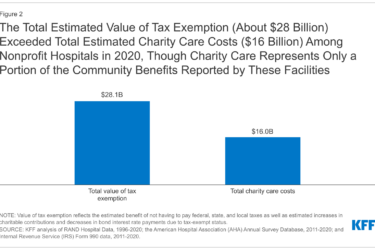Every month, we all get those embargoed Kaiser Family Foundation tracking polls in our email. As I open it, I ask myself, “Now what did Americans forget they used to like about Health Policy this month?”
Or (and you may have heard me say this before – but it sums it up well, so allow me to repeat it) when are Americans going to figure out that this unpopular law is the sum of its popular parts?
What questions do you have about Health Policy and how to cover it?
 Joanne Kenen (@JoanneKenen) is AHCJ’s health reform topic leader. She is writing blog posts, tip sheets, articles and gathering resources to help our members cover the complex implementation of Health Policy. If you have questions or suggestions for future resources on the topic, please send them to joanne@healthjournalism.org.
Joanne Kenen (@JoanneKenen) is AHCJ’s health reform topic leader. She is writing blog posts, tip sheets, articles and gathering resources to help our members cover the complex implementation of Health Policy. If you have questions or suggestions for future resources on the topic, please send them to joanne@healthjournalism.org.
Remember these polls are about opinions about a law that isn’t, by and large, in effect yet. So people hear all sorts of things about it, but they aren’t actually experiencing most of it yet. We don’t know what will happen in 2014 when – if the law survives the political process and the courts – the public may finally reach the “try it you’ll like it” stage.
That brings us to a recent survey from EBRI (Employee Benefits Research Institute) and Mathew Greenwald & Associates, Inc., a Washington, D.C., market research firm. The 2011 Health Confidence Survey, which looks at trends in employer- and union-sponsored health coverage, came out a few weeks ago, based on a telephone survey conducted in May and June.
A press release and EBRI article came out a few weeks ago, but when I looked for more details and data, I found some dated September. Because I’m going to write in pretty broad brush strokes here, including a smattering of numbers without inundating you with them, you can find more specific figures in the press release here, the November article here, and a longer discussion from September here.
Guess what? People were confused – or at least amazingly contradictory – about what they have now, as well as what they expect in the future.
For instance, people were quite satisfied with their own health coverage (amongst those that had coverage) both in terms of their health insurance plan and the actual medical care they receive. But they also thought the whole system is a mess.
Sixty percent were extremely or very satisfied with their plan (a number which surprised me given how much time people – even outside our health policy world – spend complaining about health care) and 29 percent were somewhat satisfied. People also rated the actual care they had received quite high. But more than half say the system is poor or fair; a quarter think it’s good. Only 12 percent deemed it very good and only 5 percent grade it at excellent. Naturally people were not too happy about the costs, either.
They are less confident about the future of employer- or union- provided health benefits than they used to be (NOTE: This slide began, and was sharpest, quite a few years before Health Policy was enacted. It’s definitely not because of the new law, in case someone tries to spin you that way).
People think that if they lose access to work-related health benefits or their employer/union stops providing them, they will have a really tough time affording their own insurance – even if they are subsidized by the employer or union.
Yet – despite those high unaffordability scores – two-thirds said they would be able to buy it. (You still with me?)
On Health Policy, those surveyed basically had no idea what a health insurance exchange is – which doesn’t stop them from declaring that the government can’t run them.
Just 1 percent of respondents reported that they were “extremely familiar” with health insurance exchanges in the new law. Double that amount, a whopping 2 percent, was “very familiar” “Somewhat familiar” scored 15 percent (and they can’t all be in Massachusetts). Nearly two thirds – 62 percent – said they weren’t at all familiar.
But guess what. That didn’t stop them from having strong opinions on the inability of either the state or federal government – or even private insurers – to run them.
I wonder, if they go into the exchanges in 2014, will they report being “highly satisfied” with them – and still convinced the government can’t run them? Maybe it will be a variant of “get the government hands off my Medicare.”
Which reminds us – the poll didn’t find a lot of confidence in the future of Medicare either. For what it’s worth.








